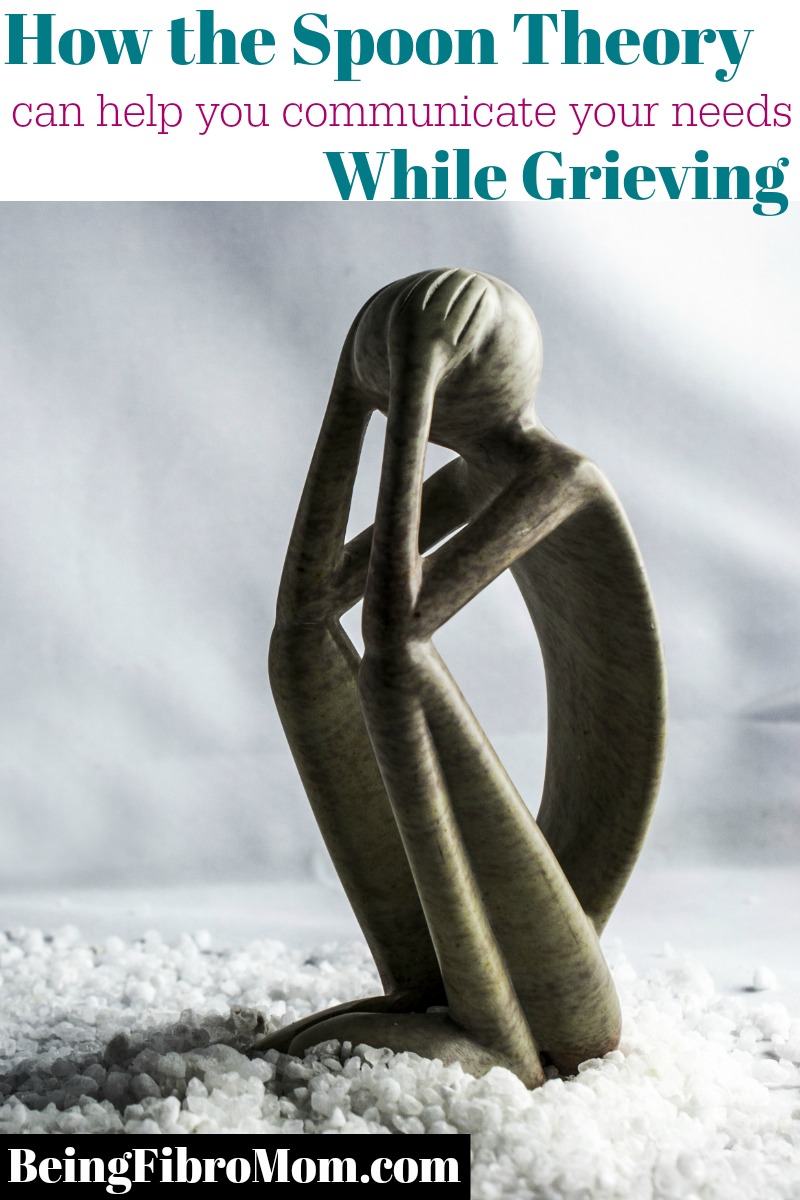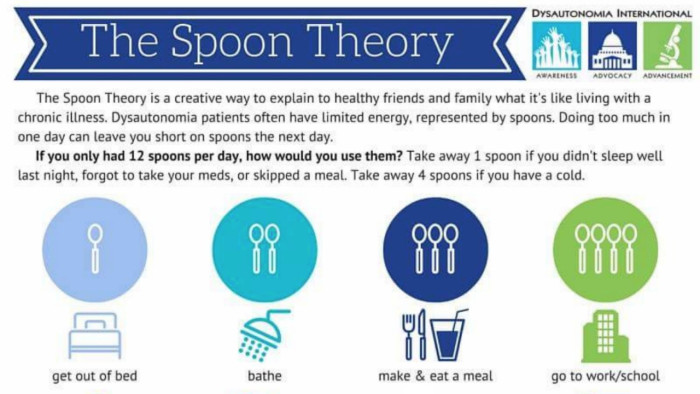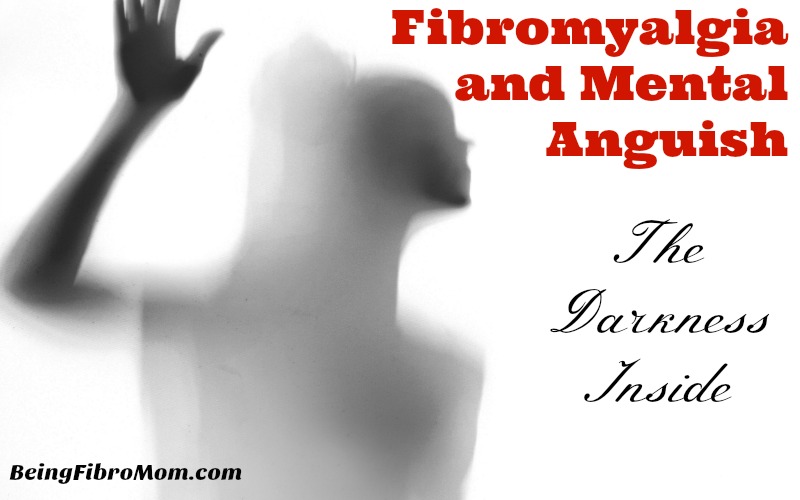Over 40% of the total U.S. population lives with some kind of chronic health condition. Being a parent is hard for everyone, and you can imagine (or perhaps you know) how difficult it is to be a parent living with chronic illness. Parents with chronic illness must constantly calculate and decide how best to expend their energy, as many so-called “spoonies” do. It is especially important when you have another being depending on you.

How the Spoon Theory Can Help While Grieving
Unfortunately, even with chronic illness, life’s tragedies don’t stop for anyone. Losing a loved one can stop you in your tracks and make daily life all the more difficult. It can feel like the world is rubbing salt in the wound. However, “spoon theory” can be useful to parents struggling with chronic illness by giving you a way to explain your chronic illness and your needs to those who can support you.

Tracking Your Spoons
When dealing with life’s unexpected incidents, you need to consider how and whether the “spoon metaphor” might apply here. Many people with chronic illness refer to themselves as “spoonies.” The spoon metaphor refers to a certain number of spoons you get per day. People without chronic illness have an unlimited number of spoons and often don’t have to think about counting them.
People with chronic illness, on the other hand, are forced to constantly be aware of the spoons they can “spend throughout the day. You might have ten spoons. Getting out of bed is two spoons, showering is another three, helping your son with his homework is another four. If you deal with fibromyalgia, you have the added spoon expenditure of dealing with physical pain. Running out of spoons can leave you exhausted. As a parent, it’s important to be careful with how you spend your spoons.

Measuring Grief in Spoons
Grief is an exceptionally difficult emotion to deal with. It can change your world, and it can take a lot out of anyone. When you also live with chronic illness, it can be especially devastating if you are grieving a spouse, a carer or another close loved one who provides you with support. Grief can be disruptive to anyone’s life. However, if you’re a spoonie, it’s extra important to learn how to communicate your needs to those around you.
By learning about “spoon theory” and how to communicate your needs and what energy you can and cannot spend, it can be easier to deal with grief. The first step to seeking support is being able to communicate what your needs are. Spoon theory can make it easier for loved ones to understand the difficulty of chronic illness, and the needs that might arise while you’re grieving.
Related Articles



